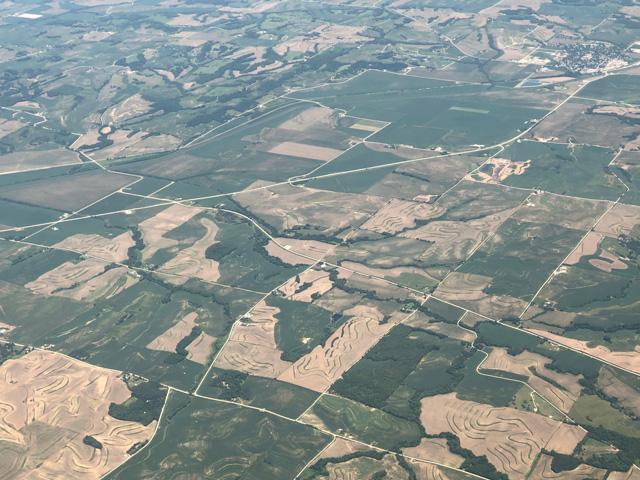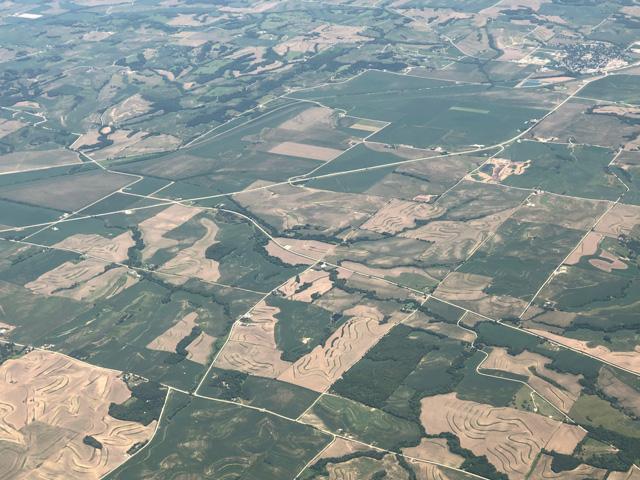An Urban's Rural View
Chinese Investments in US Ag Raise Alarms
Military radar failed to detect China's spy balloon but Chinese investment in U.S. agriculture has become a big blip on politicians' radar screens. In Washington and state capitals, legislators seem eager to shoot this bogey down.
Some of the bills they're proposing would subject Chinese ag investment to greater scrutiny. Others would ban it outright. The mood of the country favors taking some sort of action.
National sentiment today goes way beyond the reaction to Japan's investment in U.S. agriculture in the 1980s. For all the angst Japan caused Americans back then, Japan is an ally.
China is an adversary. Today is more like the early years of the Cold War between the U.S. and the Soviet Union, when nobody could afford to be labeled "soft on Communism." In similar fashion politicians today vie to be tougher on the Chinese than their opponents.
The likelihood, then, is that something will be done. The question is what exactly. Which is the smarter course, tougher scrutiny or bans?
A good place for legislators to start thinking about that is to define what, other than scoring political points for toughness, they're trying to accomplish. If, as many of them say, it's to protect national security, does protecting national security require banning all Chinese investment in U.S. agriculture?
Sometimes bans are necessary. Take the much-cited plan by a Chinese company to build a $700 million corn mill on the outskirts of Grand Forks, North Dakota. Local officials supported the plan at first, but oppose it now that the U.S. Air Force has called the proposed mill a "security risk." The Air Force has a base 12 miles away and fears Chinese spying. (https://www.wsj.com/…)
P[L1] D[0x0] M[300x250] OOP[F] ADUNIT[] T[]
In 2012, President Barack Obama nixed a Chinese company's plan to build four wind farms in Oregon near a U.S. Navy weapons-training facility. Again, fear of spying. (https://www.oregonlive.com/…)
In December, though, an interagency panel that reviews proposed foreign investments for security risks, the Committee on Foreign Investment in the U.S., concluded it lacked jurisdiction to review the proposed Grand Forks mill. Agriculture, CFIUS said, isn't in its remit.
One of the bills introduced in Congress would give CFIUS jurisdiction. Indeed, it would require CFIUS to review any investment that led to foreign control of a U.S. agriculture business. The Secretary of Agriculture would become a CFIUS panel member. (https://www.congress.gov/…)
Greatly increased scrutiny isn't enough for some legislators. They'd block controlling investments by "foreign adversaries" -- China, Russia, Iran and North Korea. (https://stefanik.house.gov/…)
In comparing the approaches, it helps to go back to what we're trying to accomplish. Is protecting national security really the only goal?
Investment, domestic or foreign, can stimulate job creation and economic growth. In some cases, I'd argue, national security could be protected without sacrificing economic benefits. Had there been no military installation nearby, Grand Forks could have reaped the benefits of that $700 million investment without risking national security.
Not everyone would agree. Proponents of bans believe all Chinese investments threaten "food security," which they (rightly) see as part of national security.
But would Chinese investments really undermine food security? The U.S. exported more than $4.8 billion of corn to China in fiscal 2022 and is trying to export more. (https://www.fas.usda.gov/…)
Were a Chinese-owned Grand Forks mill to export all of its corn to China, it would be assisting those efforts. Should the U.S. someday find itself dangerously short of corn for domestic use, Congress could impose export controls.
Though the Chinese have increased their purchases of American farmland in recent years, their holdings are still small -- less than 1% of the 3% of foreign-owned U.S. farmland. (Canadians own 31% of the 3% and investors from the Netherlands, Italy, the United Kingdom and Germany another 31%.) (https://www.fsa.usda.gov/…)According to the Wall Street Journal, which obtained the details from a Freedom of Information Act request, nearly half of the farmland acres held by China at the end of 2020 were in Texas. Legislators in that state are debating a proposed ban. (https://www.wsj.com/…)
But bans aren't the only way to deal with geographical concentrations. Once CFIUS had the authority to review agriculture investments, it could take concentration into account. A single purchase in an area has different national-security implications than, say, the purchase of much of a county.
Similarly, if Chinese holdings ever loomed as large as, say, Britain's or Germany's, CFIUS could rule the sheer quantity of land they hold bears on national security.
On balance, then, farmers and ranchers should favor the more flexible approach. Let CFIUS review proposed investments case-by-case, blocking those that threaten national security and blessing those that don't. After all, a strong economy is part of national security, too.
Urban Lehner can be reached at urbanize@gmail.com
(c) Copyright 2023 DTN, LLC. All rights reserved.






Comments
To comment, please Log In or Join our Community .